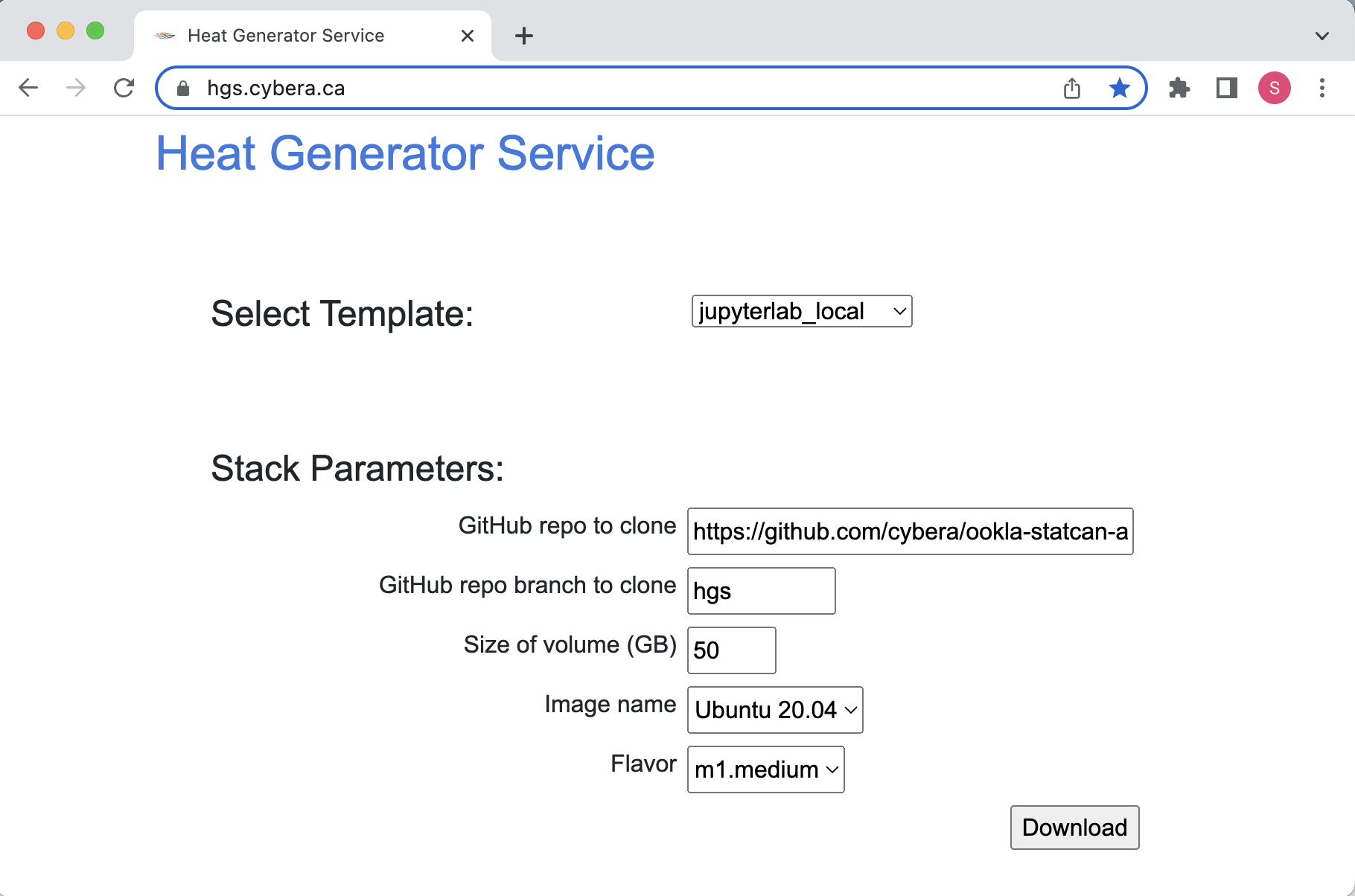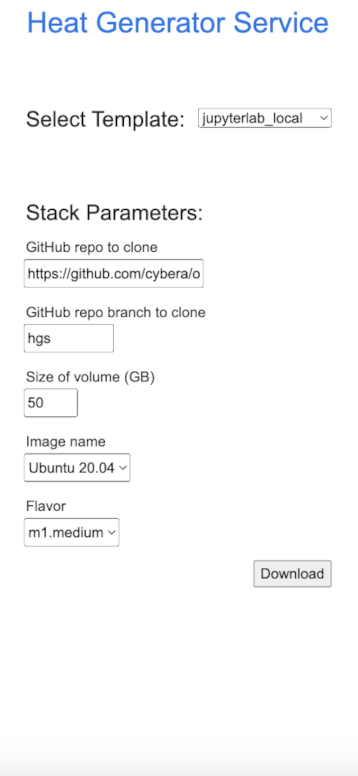

Heat Generator Service (HGS) is a Cybera hosted web application for building and downloading custom Heat Orchestration Templates.
The HGS application is designed primarily to roll out customized data science technology stacks for students engaged with Cybera Rapid Access Cloud.
The application is currently in development but a prerelease (functional subset) version is available.


The modern technology stack used by data scientists can be large and complex. The amount of time spent creating servers and configuring software can be considerable. Openstack Heat implements an orchestration engine to launch cloud applications and resources. Openstack Heat orchestration requires a heat template (YAML) file as an input to describe the openstack resources to create. This template may also include provisioning scripts to setup environments and install software. Heat templates can be quite complicated and can be authored in text editors, but this application allows quick and easy template generation from a high level.
Select a template from the dropdown. The templates provide code and configuration to build a software stack for data scientists. Each template creates a unique environment. Currently there are two templates that a data scientist can choose.
Enter a Github repo and branch to download. Heat templates have provision code to download a specific Github repo that has the install and configuration scripts.
Enter a volume size. Heat templates have provision code to create and mount a volume to store large data sets. (Maximum 250GB)
Select image name. The Heat template will be given this name.
Select a flavor. Flavors range from tiny to xlarge. The flavor determines the amount of RAM, VCPUs, root disk size and swap size the instance will consume. See a description of each flavor in this document.
Click down load button to download the template file.
Create the heat stack using the instructions as outlined here.
Note that when using the dashboard to deploy a stack, the Launch Stack screen will contain prompts as defined by the template. The prompt for a User Password is always displayed and is used by openstack to provide future updates to the stack if required. You can leave this field blank if you do not intend on altering the stack.